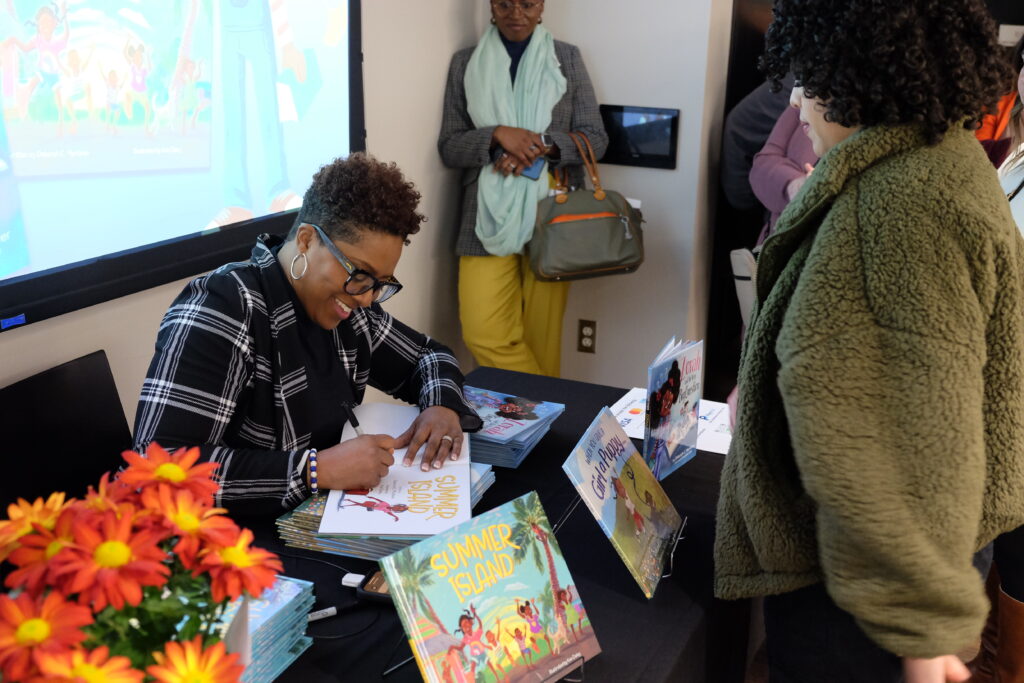
“If children are exposed to diverse books at a young age, books that reflect the world, they’ll learn to appreciate the diversity in the world as they grow,” says Deborah Mortimer, acclaimed author of diverse children’s books Zorah and the Very Big Question, When You Give a Girl a Puppy, and Summer Island.
On Wednesday, November 15, Cedar Crest College’s Education Department and Cressman Library hosted author Deborah Mortimer for a crucial conversation on the importance of inclusivity in children’s literature. Mortimer is particularly versed on the subject as both an author of diverse literature and the founder of Leap Forward Publishing, LLC, a publishing imprint dedicated to developing and promoting books that focus on diversity and representation.
Mortimer is an enthusiastic force in the publishing world, but her journey to get there was slightly unconventional – and she’s all the more inspiring for it. After pursuing a career in law and starting a family, Mortimer thought back on the joy writing brought to her childhood and decided to revisit it. With her experience in writing and law, as well as her enthusiasm for education, she levied her skills to start her own publishing company.
After publishing her first book, Zorah and the Very Big Question, Mortimer realized the startling lack of diverse titles for children. In fact, the Cooperative Children’s Book Center School of Education’s (CCBC) most recent diversity statistics from 2022 show that, of the books they reviewed, the primary character/subject of children’s literature tend to be white (29%) or have an animal as a main character (22%). Meanwhile, children’s literature with a black lead as the primary character/subject (12%) is significantly lower, as are several other marginalized identities.
Mortimer mentioned several things education professionals can do to make their classrooms more inclusive, including diversifying the classroom library, incorporating diverse text into lesson plans, promoting books by diverse authors, and working closely with school librarians to recommend and request diverse books. For those who are not educators, she recommends supporting diverse authors and buying diverse books for yourself and others.
“Representation is not only important to ensure that children see themselves in the world, but so that all children see, learn about, and appreciate those who are different from them.”